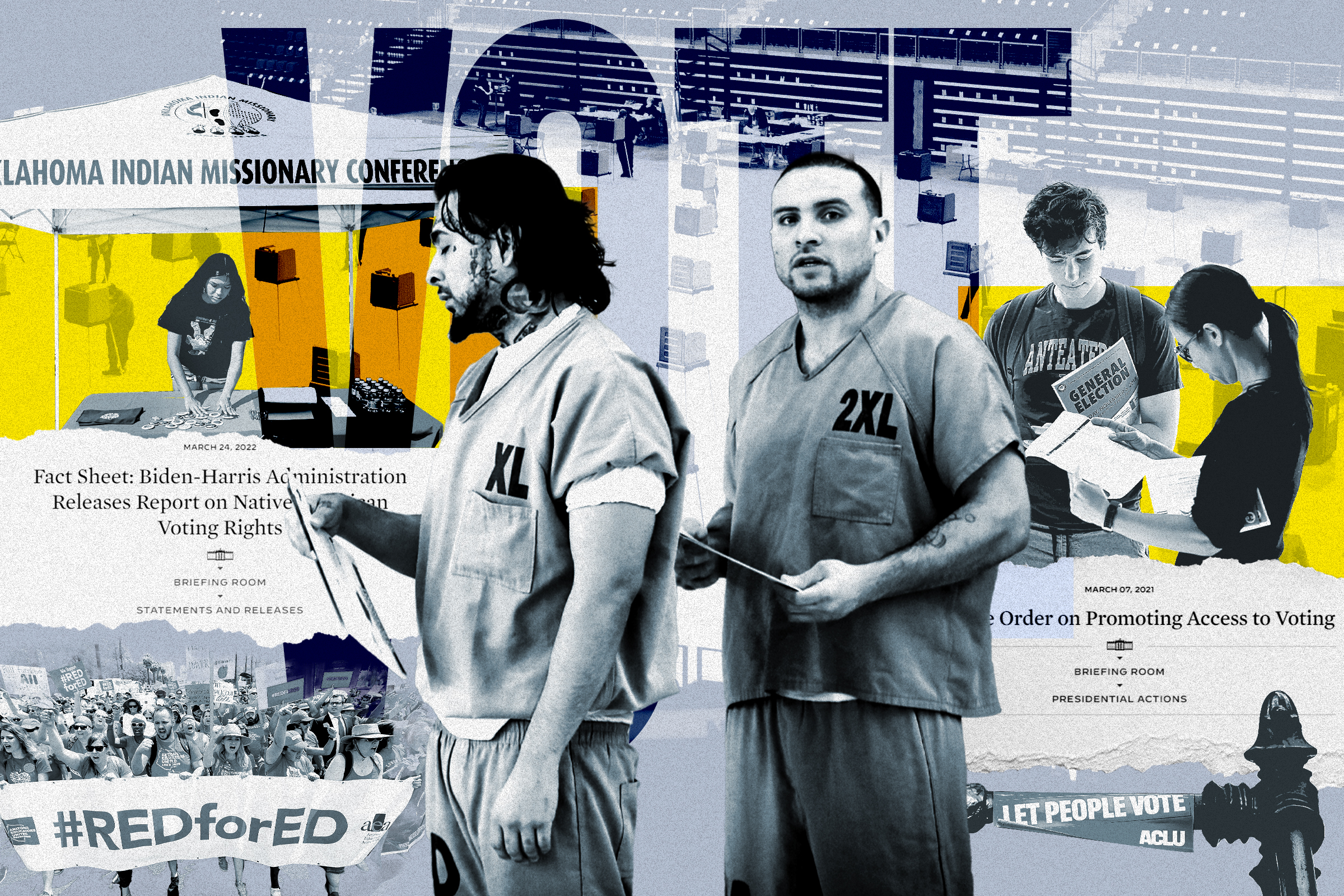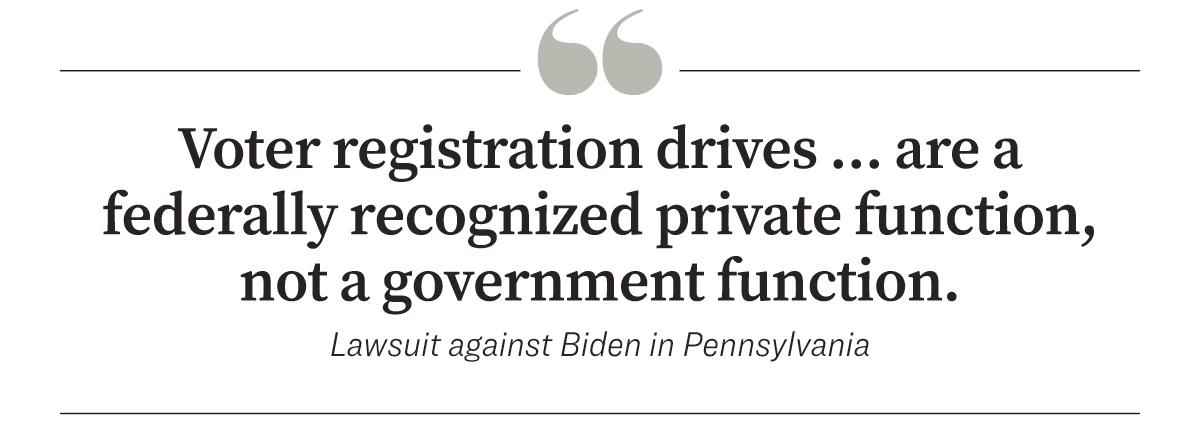A federal effort to register voters using the government’s vast reach, including throughout the U.S. prison system, is raising concerns from critics who have said it won’t benefit Democrats and Republicans equally.
Mississippi Secretary of State Michael Watson wrote to U.S. Attorney General Merrick Garland on March 6 alleging that agencies under the attorney general’s charge are “attempting to register people to vote, including potentially ineligible felons, and to co-opt state and local officials into accomplishing this goal.”
Among other things, this order has forced U.S. Marshals to modify more than 900 contracts with prisons and jails to provide voter registration documents and facilitate mail-in voting for inmates, Mr. Watson wrote.
“We have worked extremely hard to restore the confidence of Mississippi voters in our election process,” Mr. Watson told The Epoch Times. “To have the Biden administration and the DOJ purposefully undermine these efforts and jeopardize the integrity of Mississippi’s elections is unacceptable.”
The secretary of state is the chief election officer in Mississippi.
The work by the Department of Justice to register voters in prisons, critics say, is just the tip of the iceberg.
Other agencies, including the Department of Education, the Department of Agriculture, the Department of Health and Human Services, and the Department of Housing and Urban Development, are also carrying out campaigns to sign up new voters.
On Feb. 26, Vice President Kamala Harris lauded a federal plan to use work-study grants to pay students to register voters.
In addition, President Biden’s executive order directed federal agencies to select “approved, nonpartisan third-party organizations and state officials to provide voter registration services on agency premises.”
However, critics say elections are under the purview of states, not the federal government.
“The reason it’s such a big problem is that, with the president, it’s only one political party that’s in power,” Stewart Whitson, legal director of the Foundation for Government Accountability (FGA), a conservative think-tank, told The Epoch Times.
“If you allow the president to be the one to decide where all these massive resources are channeled, that’s problematic,” he said, adding that this is why the Founders gave election authority to states and not to the federal executive.
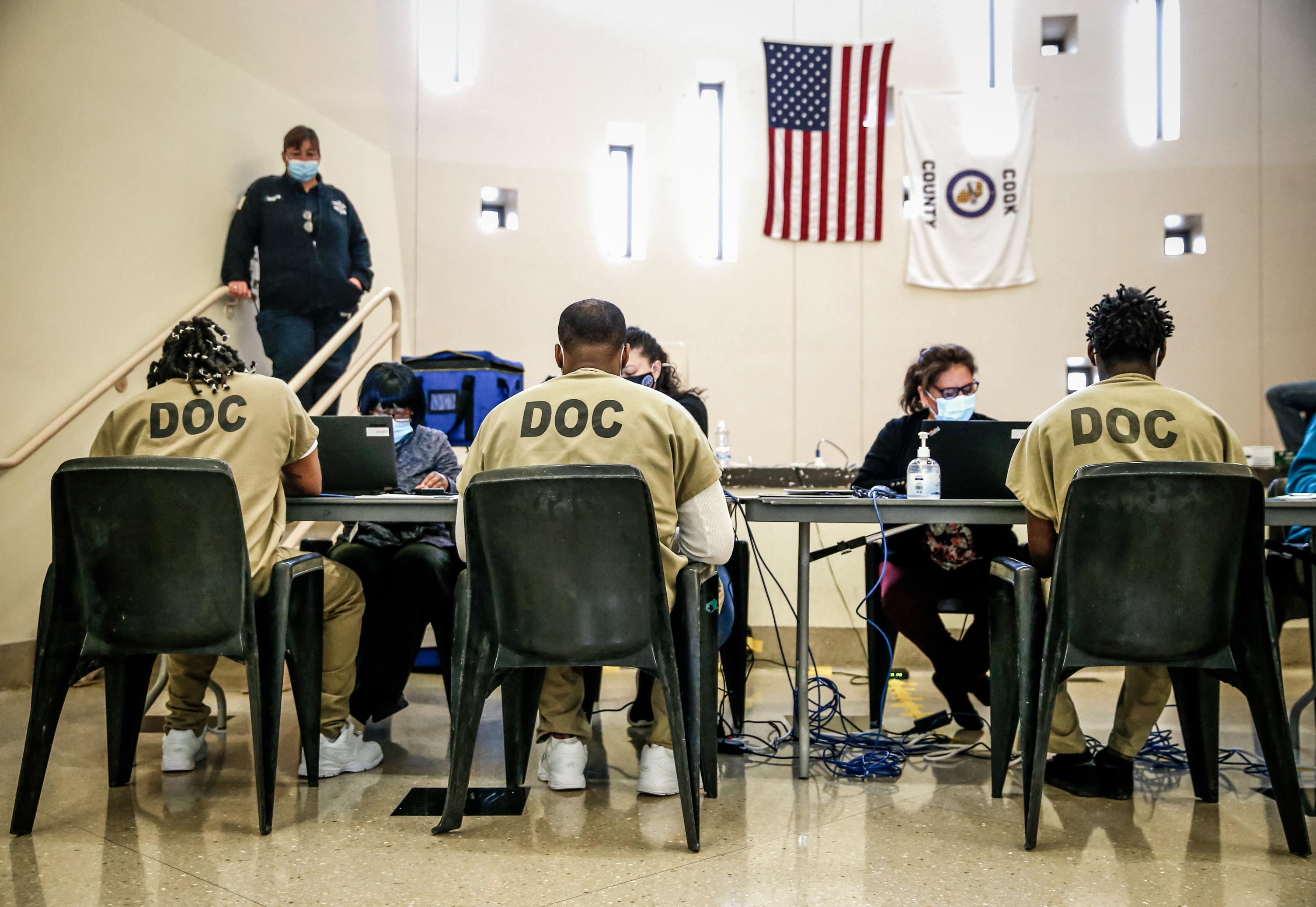
Implementation Questions
The plan has been called “Bidenbucks” by some of its detractors, referencing the injection into state election programs of $400 million in 2020 from Facebook co-founder Mark Zuckerberg, dubbed “Zuckerbucks.”“This is Zuckerbucks on steroids because instead of $400 million, it’s unlimited funding and resources and the reach of the federal government and all its offices located across the country,” Mr. Whitson said.
Previous efforts to federalize elections through Congress have failed.
Democrats claimed the bill was necessary to fight “voter suppression” by state governments.
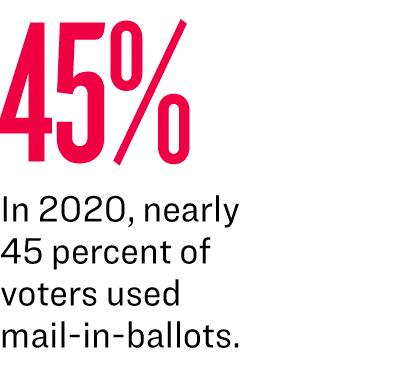
Since the president signed EO 14019, a number of attempts have been made to obtain information about how federal agencies will implement it, particularly which private organizations it has selected to work out of federal offices alongside government officials.
Federal departments refused to release this information, and requests were followed up with FOIA filings and subsequently by lawsuits; however, the Biden administration continues to defy the requests.
In July 2021, the FGA filed a FOIA request regarding President Biden’s Voting Access plan. The group sought information about what federal agencies were doing to implement the plan, as well as records from planning and strategy meetings among President Biden’s staff, federal agencies, and the architects of EO 14019.
“These documents, in any other context, would be handed over much more quickly,” Mr. Whitson said. “So this indicates to us that there’s something there the Biden administration really does not care to share, because they’ve withheld it for nearly three years now.”
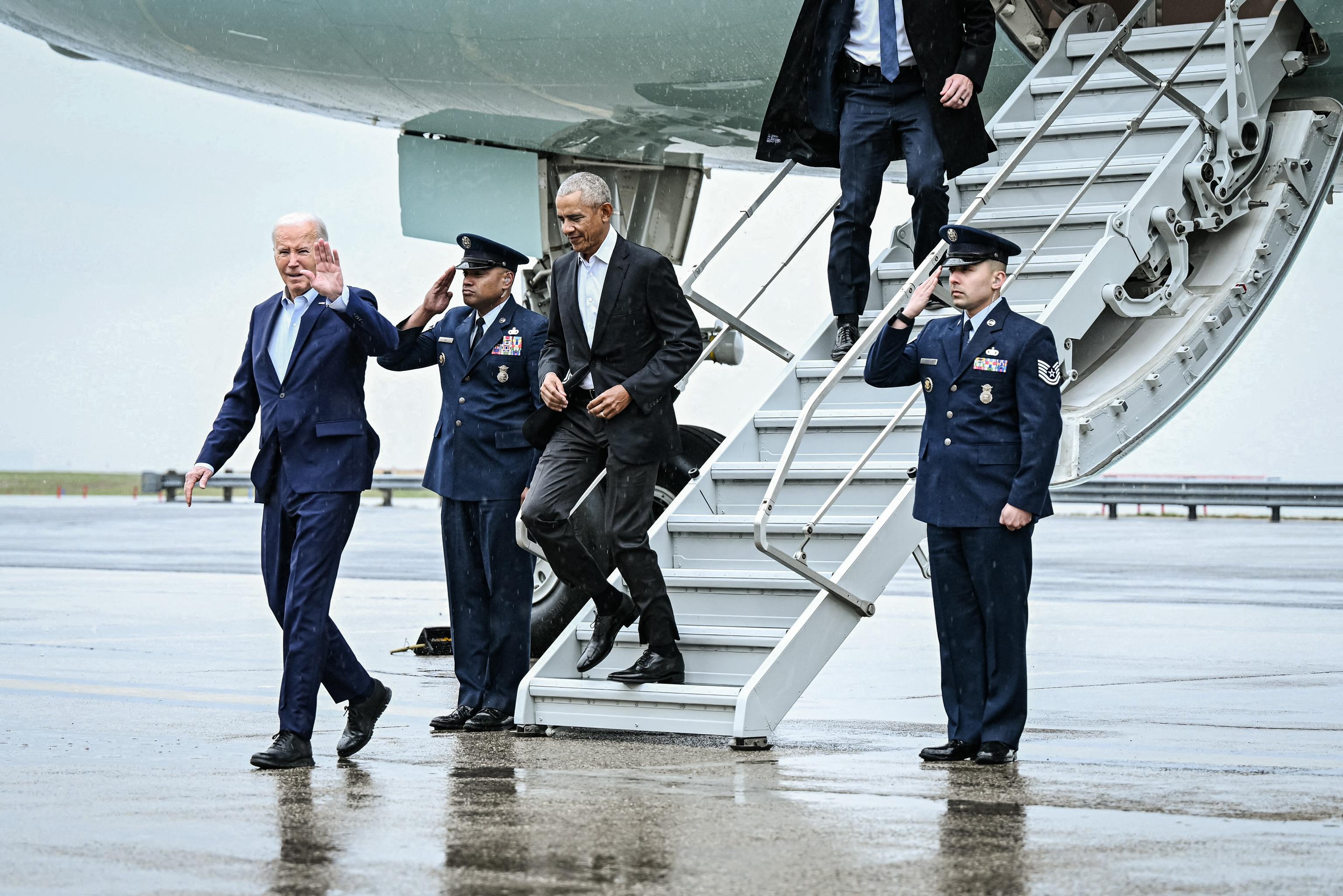
How Federal Agencies Enact EO 14019
Prominent among the many federal agencies carrying out the executive order is the Department of Health and Human Services (HHS), which announced in 2022 that federal health centers across the nation now have the discretion to participate in activities—including voter registration—that are outside the scope of core department activities.The letter states, “If a student is employed directly by a post-secondary institution, the institution may compensate a student for [Federal Work Study] employment involving voter registration activities that take place on or off-campus.”
The Department of Education has been particularly active in turning out likely Democrat voters, according to Scott Walter, president of the Capital Research Center.
“Every college campus is massively dependent on Department of Education largesse, from Pell grants to every other kind of aid,” Mr. Walter told The Epoch Times.
“The Department of Education in 2022 was threatening campuses that you better be registering students or you could lose your federal funds.”
The Department of Agriculture issued letters to state agencies administering the Supplemental Nutrition Assistance Program and the Women’s Infants and Children’s low-income food program, instructing them to carry out voter registration activities with federal funds.
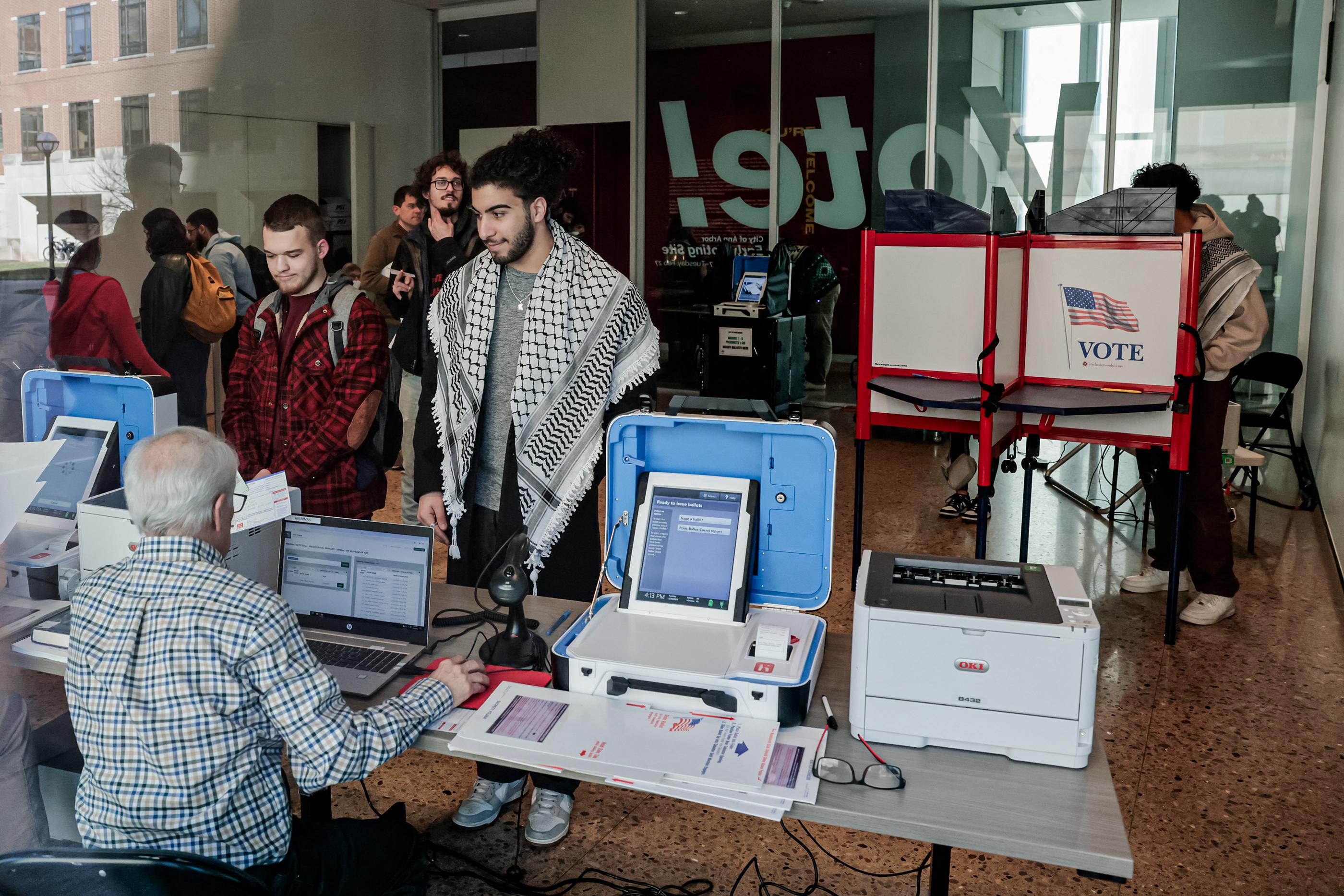
Targeted Registration?
Two proponents of President Biden’s Voting Access plan, the ACLU and a coalition of progressive groups called Strengthening Democracy, produced their “Progress Report on Federal Agency Action to Promote Access to Voting” in March 2023.The report states that federal agencies should sign up new voters in the following ways: HHS should include voter registration in applications for health insurance under Obamacare; the VA should include voter registration for veterans who sign up for VA health benefits; Indian Health Services should help register patients using IHS facilities; the Education Department should include voter registration when students apply for federal student aid; and the Bureau of Prisons should work to register eligible convicts.
The report praised the Treasury Department for its efforts targeting voter registration efforts at “low income clients of its voluntary tax preparation clinics.”
Partnering With Private Organizations
An additional concern is that these federal agencies are partnering with private groups to sign up voters on federal agency premises.“They’re essentially taking third-party groups and they’re bringing them onto federal land, into a federal office, and who knows what they’re doing,” Mr. Whitson said. “Who knows if they’re following state laws governing voter registration and the collection of applications?
“Our question is, which groups are approved, what’s the criteria for approval, who gets to decide which groups you’re going to cooperate with? And they haven’t disclosed that information either.”
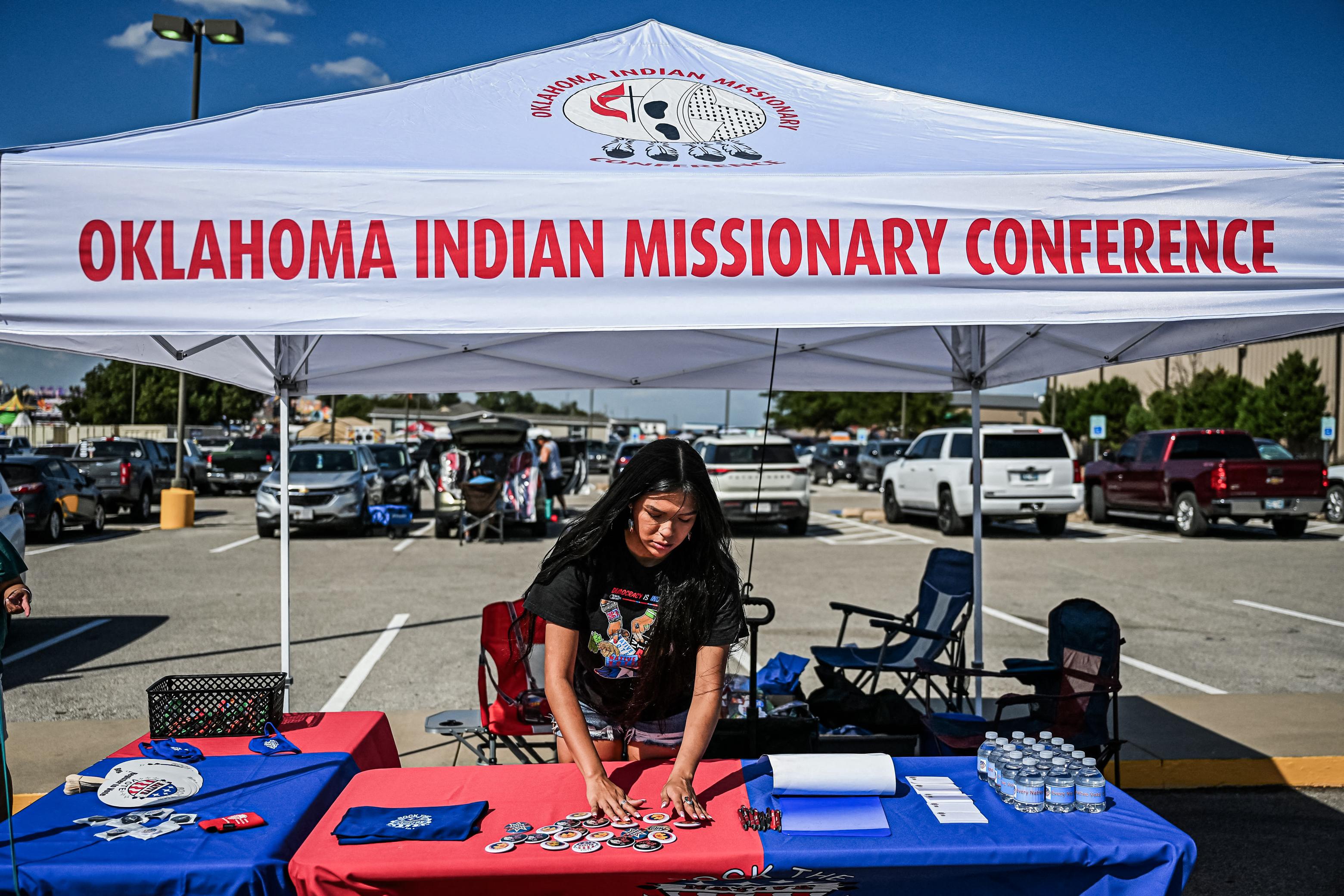
Mr. Watson also voiced this concern regarding DOJ efforts to sign up prison inmates to vote in Mississippi.
The Mississippi secretary of state’s letter stated that, although his department oversees state elections, it is not aware of any contact between it and the DOJ, which raises the question of which organizations the Marshals are using to accomplish this demand.
“Many outside groups performing voter registration and vote harvesting services are partisan entities with a history of being unreliable,” it reads.
According to the FGA’s investigations, Mr. Whitson said, “We can see a sampling of who these hidden third-party groups are, and they’re all left-wing voter advocacy groups.
“As they’re handing out welfare benefits, they’re allowing these groups special access. They’re allowing them to set up in the lobby so when people come into the agency to fill out their paperwork and apply for benefits, they’re greeted by these groups.”
Pushback
In May 2023, a group of Republican senators introduced a bill that would prohibit federal agencies from using taxpayer funds or collaborating with private organizations to mobilize voters.“President Biden’s executive order empowering every federal agency to engage in electioneering on the taxpayers’ dime raises serious ethical and legal concerns [and] is inherently political and directed primarily at groups expected to vote for one party over another,” he said.
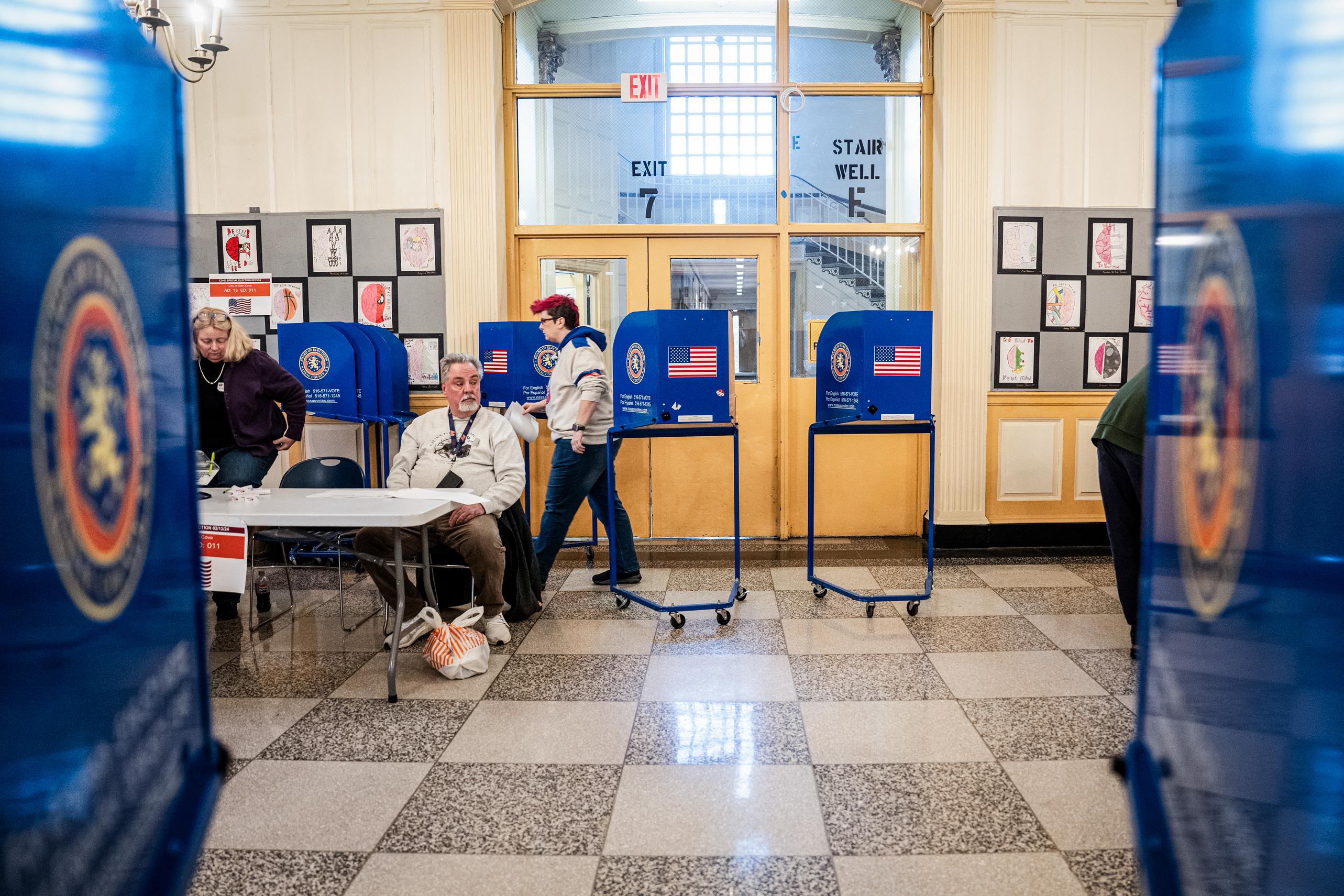
“This is an inappropriate and unconstitutional federalization of elections,” Rep. Tenney said at the time. “America’s civil service should be nonpartisan, and federal agencies should not be using taxpayer funds to actively engage in get-out-the-vote operations that have nothing to do with the agency’s core missions.”
Rep. Rosa DeLauro (D-Conn.) responded by saying President Biden’s executive order “recognizes that there are too many obstacles to voting” and it is in place to “expand access to voter registration and election information.”
The amendment passed by a voice vote; the bill is currently stalled in Congress.
Simultaneously, a group of 24 Republican legislators in Pennsylvania have filed a federal complaint against President Joe Biden, Gov. Josh Shapiro, and representatives of the Pennsylvania Department of State, saying they have usurped the authority of the Legislature by changing voter registration and election rules.
Their complaint in U.S. District Court for the Middle District of Pennsylvania asks a judge to declare three actions unconstitutional: a voter registration executive order made by President Biden, a voter registration action by Mr. Shapiro, and some Department of State directives. They also request that the judge issue an order prohibiting the president, the governor, and state executives from making future changes to the elections process in Pennsylvania without following the legislative process.
“Federal campaign finance laws apply to private parties’ voter registration activities,” the court papers say. “Voter registration drives ... are a federally recognized private function, not a government function.”
